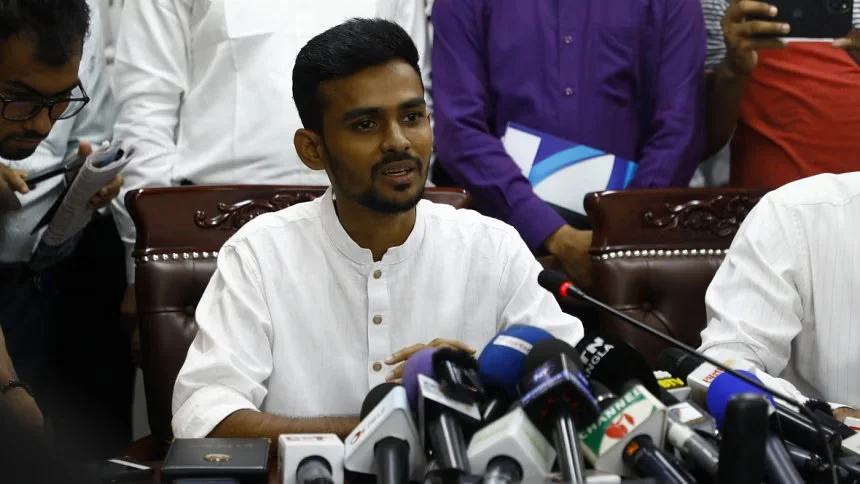Asif Mahmud: July 15 was turning point of student uprising
Share on:

Youth and Sports Adviser Asif Mahmud Shojib Bhuiyan has said that after July 15, their movement transitioned from being solely about quota reform to embodying the people's longstanding desire for freedom from oppression and injustice, particularly following the attacks on them.
He made these remarks on Saturday during a seminar titled "Dhaka Medical College Hospital in the July Revolution" at Shaheed Dr Milon Auditorium of Dhaka Medical College.
Adviser Asif Mahmud said that after announcing the anti-discrimination student movement program, there was some apprehension about participation.
“I went to Raju Sculpture and saw Dhaka Medical doctors there first. They had already marched to Raju Sculpture and were stationed there. That inspired us greatly,” he said.
Addressing the doctors, he said: “You played a very significant role. I couldn’t thank you enough then but thank you so much. Your contributions will be remembered.”
Asif Mahmud also said: “In Bangladesh, the fascist system of the past 16 years politicized areas where politics should have no place. For instance, I’ve seen how sports have been politicized during my work. Similarly, the healthcare sector has also been politicized. On August 4, every medical college held peace rallies, which was deeply disappointing. I hope you will stand against the politicization of healthcare.”
Tariqul Islam, the central coordinator of the Anti-Discrimination Student Movement, said: “Despite Dhaka Medical’s significant role in the revolution, we couldn’t properly acknowledge it after August 5. Today’s event aims to highlight their contribution to the nation.”
Commenting on the pervasive politicization of professions, he said: “We prefer identifying ourselves by party affiliation rather than as Bangladeshis. The Awami League has infiltrated politics into every sector, completely capturing the health sector. We no longer want politics in healthcare.”
The event was chaired by Dhaka Medical Hospital Director Brigadier General Asaduzzaman.
Others present included Dhaka Medical College Principal Professor Dr Kamrul Alam, Associate Professor of Orthopedics Dr Shafiqul Islam, and others

